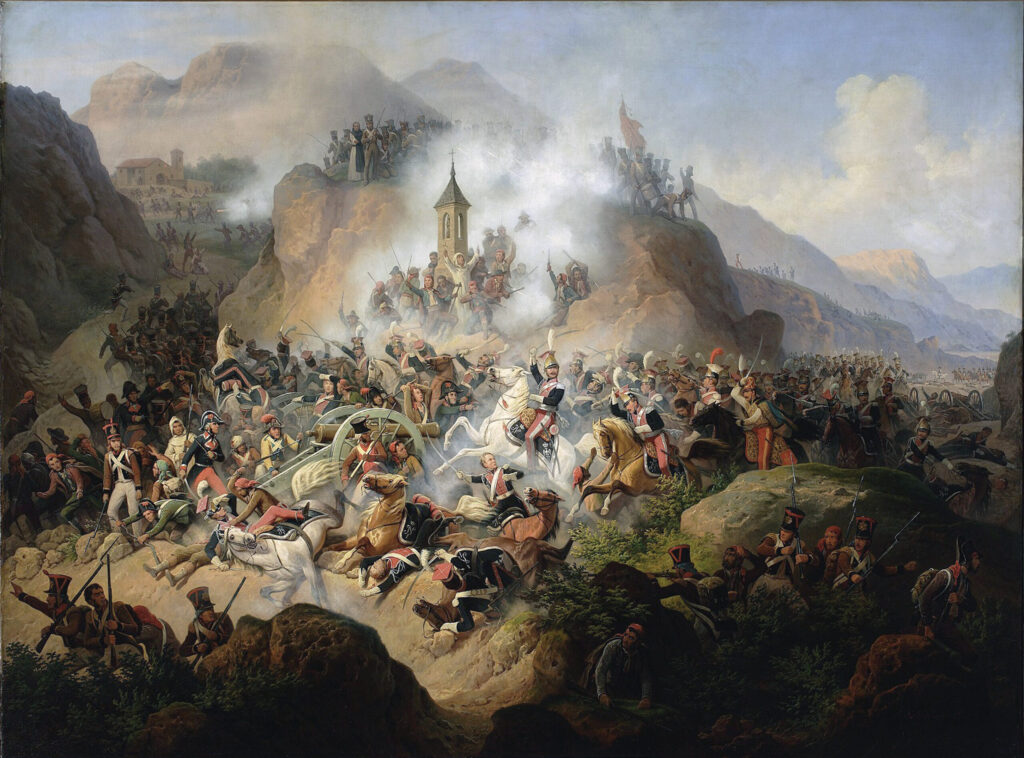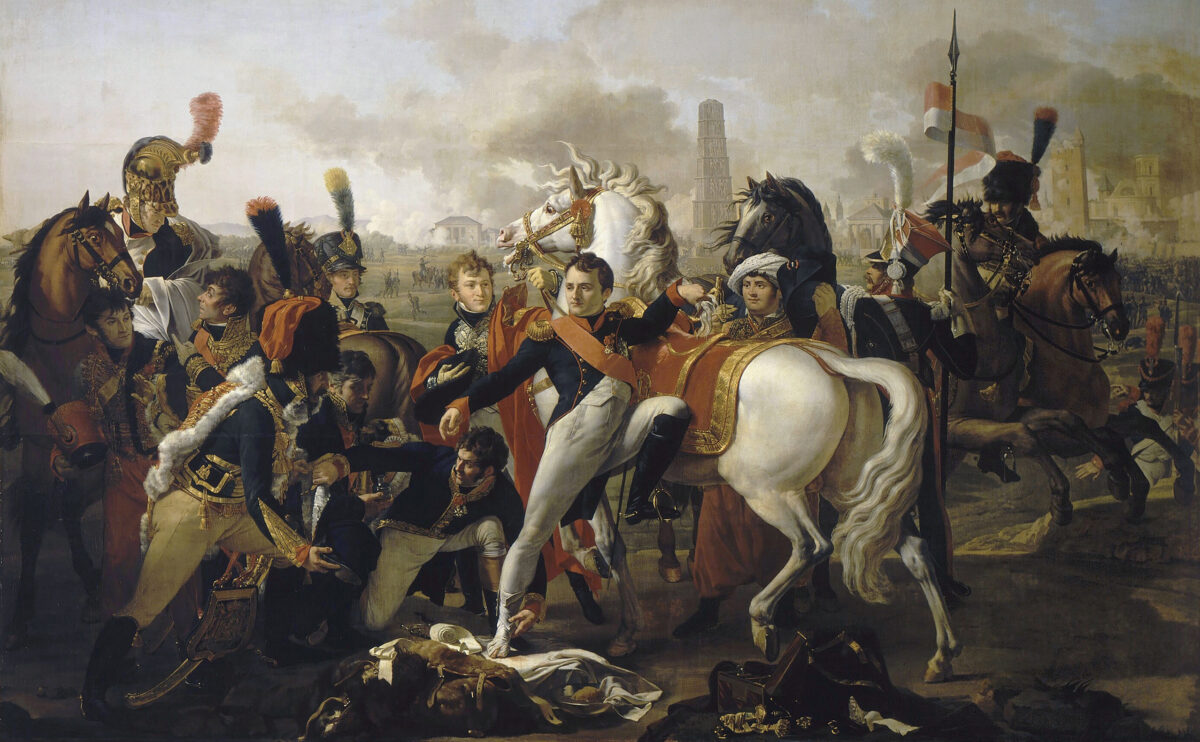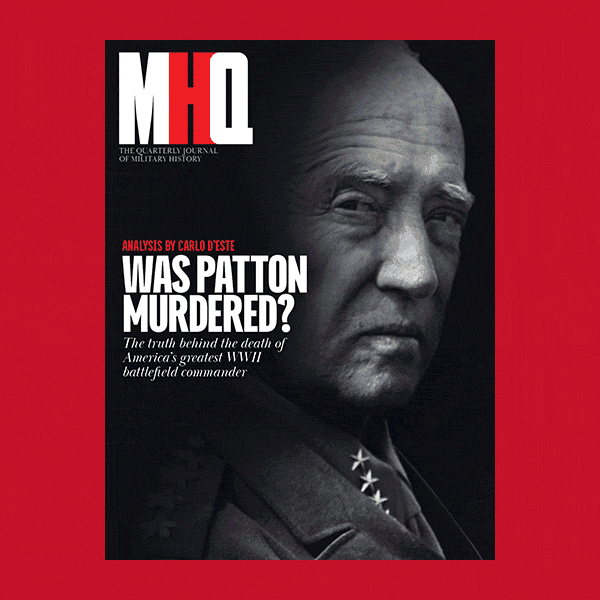One of the finest, most revealing and genuinely authentic accounts of the French Army of Napoleon Bonaparte (from May 18, 1804, Emperor Napoleon I) are the memoirs written by an officer who served in it as an infantry captain through numerous campaigns. Entering the French Army as a velite (elite infantryman named after those of ancient Rome) in Napoleon’s Imperial Guard, Blaze gained an officer’s commission and then served mainly as a line infantry captain. He participated in the French Emperor’s series of wars waged upon France by a succession of coalitions formed by Europe’s kings and princes who were determined to stamp out the forces of change and reform unleashed by the 1789 French Revolution and spread by Napoleon’s conquests that threatened their regimes.
Blaze participated in numerous campaigns, from those in Poland (1807) through Napoleon’s defeat in March 1814 in the War of the Sixth Coalition leading to the Emperor’s first exile (to Elba). Particularly revealing to Napoleonic War scholars are Blaze’s recollections in his memoir of the Peninsular War (1807-1814), the brutal struggle fought on the Iberian Peninsula that pitted the occupying power, France, against Spain, Portugal and Britain in fierce combat featuring both conventional and guerrilla warfare (the name itself of the unconventional warfare by which the latter is known originating in the Peninsular War).
A keen observer with the literary skill to capture his observations in captivating prose, Blaze’s descriptions of bloody combat and its inevitably grim aftereffects seem generations ahead of his time. This excerpt from Blaze’s memoir pulls no punches.
Marching With Napoleon
People, after having read history, generally think that a battle is like a review at the Champ de Mars, and that one hundred thousand men placed opposite one hundred thousand men amuse themselves in shooting down each other at their ease to the accompaniment of cannon to produce the effect of the double-bass in an orchestra. I am going to explain to them how a battle is fought.
Our army is on the march preceded by its advance guard, composed of light troops. The hussars go like very devils; they trot, they gallop, the enemy flees before them; but soon they stop, our hussars stop also. A village defended by a few hundred men is in front of us, it is ordered attacked by sharpshooters. At the moment that our men enter the gardens, a battalion of the enemy appears which makes them lose ground. We send a regiment to support them, the others send two; we order forward ten, the enemy shows us twenty; each side makes the artillery advance, the cannon growl, soon everyone takes part in the merry-making, fighting goes on, they slaughter one another; one cries for his leg, another for his nose, others cry for nothing, and there is food for the crows and for the makers of official reports.
The Science of A General
The science of a general-in-chief amounts to this: to have on a set day, at a given point, as many men as possible. Napoleon said it, and Napoleon was a judge. A general must know which point of the map will be most seriously disputed. It is there that the battle will be fought, it is consequently there that he must bring all his troops by twenty different roads. An order badly given, badly understood, often causes the failure of the finest strategic combinations, to-wit: [Marshal Emmanuel de] Grouchy’s corps which did not reach Waterloo [leading to Napoleon’s final defeat, June 18, 1815]. The First Consul, before leaving Paris, had marked with a pin on the map the plain of Marengo for the scene of a new triumph; the result justified his prevision.
The science of a general consists also in knowing the strength of the enemy at such a point, his weakness at such another. To succeed in this, the service of spies is indispensable. Good ones must be had and they must be well paid. Napoleon gave gold by the handfuls; it was a good investment. We have had generals put to rout because they haggled on the subject of secret funds.

When one approaches a battlefield where the fighting is on, nothing is so discouraging for the young soldiers as the remarks of the wounded who are going back. “Do not go so fast, do not hurry,” they say, to be killed, it is not necessary to run so quickly.’ “The enemy is ten times more numerous than we.”…In vain are they told to be silent; an arm in a sling, a gash across the face guarantee impunity, give the right of insolence, and the jeremiads continue so long as they find someone to listen to them.
Pleasure and Pain
One of these poor devils was passing before us with his head split open and his arm broken. Everyone was moved to pity at sight of him. “How sad!” the men said: “two wounds! what a long road to go to be bandaged!” “You are all fools,” exclaimed the wounded man: “you’ll have more than that presently: I know my fate, but you do not know yours.” You should have seen the faces of the recruits on hearing these remarks, and specially on seeing the first bodies they came across. They went twenty feet out of their way for fear of touching them, soon they came nearer, later they marched over them without ceremony.
Man becomes accustomed to everything, to pleasure and to pain. How often have you experienced that a great grief, a great joy, after two weeks becomes dull sensation, a very ordinary thing? Remember this at your next sorrow, and say: “This will pass as other sorrows have passed.” To prove the truth of my reasoning, I am going to tell you a little story. You know that after the siege of Toulon [August-December 1793], the Republic caused all those who at that time were opposed to it to be shot down. After the guns had thrown down entire lines, a voice called out: “Let all those who are not dead rise! The Republic pardons them!” A few wretched wounded, others whom the grape-shot had spared, deluded by this promise, raised their heads: at that moment, a squadron of butchers (history says a squadron of dragoons; history must be mistaken) rushes on them, sword in hand, completing what the guns had commenced; soon the sun set over this atrocious slaughter.
On a beautiful night, one of these wretches awakes in the middle of this ocean of bodies; he is wounded in ten places, in the head, in the legs, in the arms, in the chest, everywhere. He rolls over, he drags himself along. “Who goes there?” cries the sentry…”Finish me, you will do me a service; you will perform an act of humanity.’
“I am not an executioner, I tell you.”
“Finish me, I beg of you, all my members are broken, my head is split open, it is impossible for me to recover; you will spare me horrible suffering, finish me.”
Fear and Honor
The sentry drew near, verified the condition of the wounded man; believing in the impossibility of a cure, compassion determined him; had he fired his gun, the post would have taken up arms, he thought it best to use his bayonet, which he thrust into the body of the wretched man. Would you believe it? This man did not die. The next day, while burying all these corpses, a grave-digger saw that he was still alive; he carried him to his home, nursed him, and life returned. All the wounds were cured. That man was M. de Launoy, a naval officer under Louis XVI; he might well have spared himself that last bayonet thrust…
It must not be believed that in the army everyone is brave; I have seen some who could never become accustomed to the sound of the cannon. At Wagram [1809], a soldier of my company had a violent attack of epilepsy which was ended by the whizzing of the first shot.
An officer of my regiment, with thirty years of service, had never been on the fighting line; the sight of a sword made him pale, and he confessed it frankly. “I should very much like to go on the battlefield, but it is not possible, I should fall back at the first gunshot, and it would be a very bad example.” He was usually left behind at the garrison where, however, he made himself very useful by drilling the recruits.
If everyone was not brave in the army, there were some to be found whose courage was not to be compared to anything; and this in all ranks, in all degrees, from King [Joachim, King of Naples, French Marshal] Murat to the common fusilier, from General [Jean-Marie] Dorsenne to the drummer. I could write ten volumes simply on the truly fabulous acts of bravery of our warriors. I shall mention but one which the entire third army corps witnessed in Spain.
General [later Marshal, Louis-Gabriel] Suchet had just taken Mount Olivo [May 1811] in spite of the predictions of the Spaniards. “The trenches of Mount Olivo,” they said, “will bury all the troops of Suchet, and the trenches of Tarragona all the troops of Bonaparte.” He meets a wounded soldier whom his comrades were carrying to the ambulance: “Victory, victory, Mount Olivo is taken!”
“Are you gravely wounded?”
“No, general, but unfortunately wounded seriously enough to be obliged to leave the ranks.” “Well answered, friend. What do you wish as a reward for your services?”
“To be allowed to lead the attack when you take Tarragona.…You promise me this?”
“Yes.”
On the 30th of June, 1811, that is to say one month after, the general-in-chief was about to storm the place. The troops were forming their columns of attack when a footsoldier in dress uniform, as resplendent as on a parade day, approached Suchet. “I came to remind you of your promise: I wish to lead the attack.”
“Ah! it’s you, my brave fellow, very good; but soldiers of your kind are too rare that I should be wasteful of their blood. Remain in your company; by imparting your noble courage to all, you will render greater service than by having yourself killed alone.”…
“General, I have your word, and I wish to be the first to attack.”
“So much the worse, my brave fellow, so much the worse for us, do as you please.”
The columns start and my foot soldier passes them by twenty paces; he rushes forward in the midst of the grape shot, he is the first to climb the breach, and there, falls riddled with bullets. Picked up by order of Suchet, this brave soldier was carried to the hospital: a breath of life permitted him to see on that same day the entire corps of officers, with the general at their head, who came to visit him. Suchet took off his cross to decorate the breast of the footsoldier who died admired by the whole army. That hero’s name was Bianchelli. [Politician, diplomat, historian François-René] Chateaubriand has said: “Glory must be something very real, since it causes the heart of the one who is only its witness to beat.”






